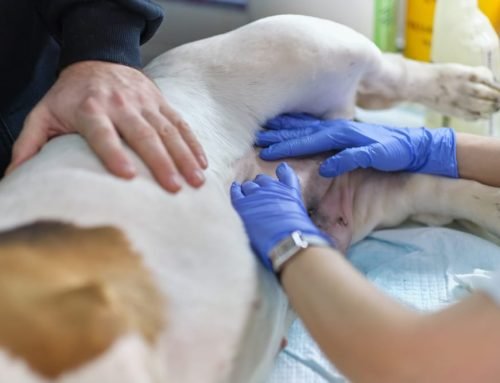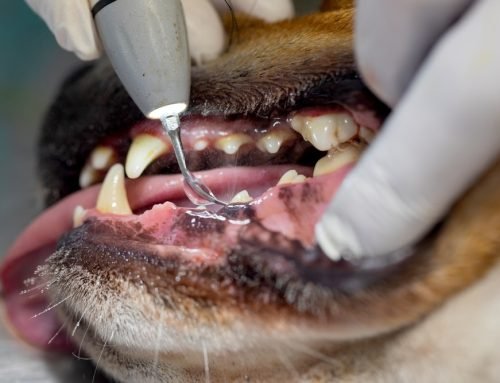If your dog or cat seems itchier or more uncomfortable as the seasons shift, you’re not imagining it—pets can suffer from seasonal allergies just like people. But instead of sneezing and watery eyes, their symptoms often show up as irritated skin, nonstop scratching, or ear infections that seem to appear out of nowhere.
And here in Florida, where warmth and pollen persist almost year-round, allergy season never fully ends.
At St. Petersburg Animal Hospital & Urgent Care, we talk with pet parents every day who are frustrated or heartbroken watching their pets struggle. If that’s you, please know—you’re not alone. Allergies are common, treatable, and not something to be ashamed of.
Why Allergies Escalate So Quickly
Imagine this: yesterday, your dog gave a little scratch behind the ear. Today, they’re itching all night long, licking their paws raw, and now they’ve developed a red, oozing hotspot.
Allergy symptoms in pets can go from minor to major almost overnight. That’s because once the itch-scratch cycle starts, pets often can’t stop themselves—and self-trauma from licking, biting, or scratching quickly leads to skin infections.
The challenge? It’s hard to predict when a mild flare-up might spiral. That’s why early action is so important.
What Are Seasonal Allergies in Pets?
Also called atopic dermatitis, seasonal allergies happen when a pet’s immune system overreacts to environmental triggers like:
- Tree, grass, or weed pollen
- Mold spores
- Dust mites
- Outdoor fungi or dander
- Flea saliva (in pets with flea allergy dermatitis)
AAHA explains why consistent parasite control is essential—not just for fleas, but for helping prevent misdiagnosed allergy flare-ups. Pets with normal skin may handle a flea bite with no problem; pets with already irritated, itchy skin may see much more severe reactions.
Common Allergy Symptoms in Pets
While humans tend to sneeze, pets mostly show skin and ear symptoms—and those can be easy to miss at first.
Watch for:
- Persistent scratching, licking, or chewing (especially feet, ears, belly, or base of the tail)
- Red, irritated, or inflamed skin
- Hair thinning or bald patches
- Ear infections or head shaking
- Sneezing, nasal discharge, or watery eyes
- Raised bumps or hives
- Constant licking of paws (especially at night)
Ear and paw itching are often the first signs—and they escalate quickly. If your pet keeps returning to the same itchy spot, it’s time to intervene.
What to Do at the First Signs of Itching
When you catch symptoms early, you can often prevent more serious complications.
Here’s what we recommend at the first signs of itching or licking:
- Bathe your pet in a gentle, vet-approved shampoo and conditioner to wash off allergens and soothe inflamed skin
- Inspect paws, belly, and ears for signs of redness, moisture, or scabs
- Use booties, a cone, or a body suit to stop self-trauma from licking or scratching
- Give an antihistamine or allergy medication as directed by your veterinarian- ask for an appropriate dose. Monitor closely, and if symptoms don’t improve within a day or two, give us a call.
This kind of proactive care can prevent a small irritation from becoming a full-blown skin infection.
How We Diagnose Seasonal Allergies
At St. Petersburg Animal Hospital & Urgent Care, we use a step-by-step approach to identify what’s bothering your pet—and how best to treat it.
Diagnosis may include:
- Full physical exam
- Skin cytology to check for yeast or bacteria
- Ear swabs to assess inflammation and infection
- Parasite checks
- Allergy testing in complex or recurring cases
We’ll explain every step and work with you to create a plan that actually works for your pet—and your life.
Treatment Options for Allergies
There’s no single solution, but most pets find relief through a combination of treatments tailored to their symptoms.
1. Medications
- Antihistamines or steroids for inflammation
- Apoquel or Cytopoint for dogs with chronic allergies
- Topical or oral antibiotics if infection is present
- Prescription ear drops when ears are involved
Cornell explains proper ear cleaning here
2. Topical Therapy
- Medicated baths or sprays help wash allergens away and soothe the skin
More on topical therapy
3. Nutrition & Skin Support
- Diets rich in omega-3s and essential nutrients help strengthen the skin barrier
Guelph shares nutrition insights
4. Allergy Immunotherapy
- Custom allergy shots or drops to desensitize your pet over time
Managing Allergy Season at Home
Daily steps make a big difference:
- Wipe paws and belly after every walk
- Bathe regularly using a vet-recommended shampoo
- Keep bedding and floors clean and allergen-free
- Use air purifiers or filters indoors
- Close windows during peak pollen times
- Stick with year-round flea and tick prevention
- Stay on a consistent grooming schedule
Purdue offers more helpful allergy care tips

When to Call the Vet
Reach out right away if your pet shows:
- Open sores or raw hot spots
- Excessive licking or chewing that’s disrupting sleep
- Chronic or recurring ear infections
- Pain, swelling, or visible skin infection
We offer same-day urgent care when flare-ups happen fast.
Next Steps: Let’s Help Your Pet Feel Better
Living with allergies is miserable for everyone involved. What matters most is helping your pet feel better, so they can get back to the things they love (without itching, licking, or hurting).
At St. Petersburg Animal Hospital & Urgent Care, we’ll meet you where you are. Whether this is your pet’s first allergy season or something you’ve been battling for years, we’re here to help—compassionately, completely, and without judgment.
Book an Allergy Evaluation Today
If your pet is scratching more than usual—or if something just feels off—trust your gut and schedule an exam. The sooner we intervene, the more comfortable your pet can be.
Together, we’ll turn allergy season into a manageable season—with less scratching, fewer infections, and more tail wags.







Leave A Comment